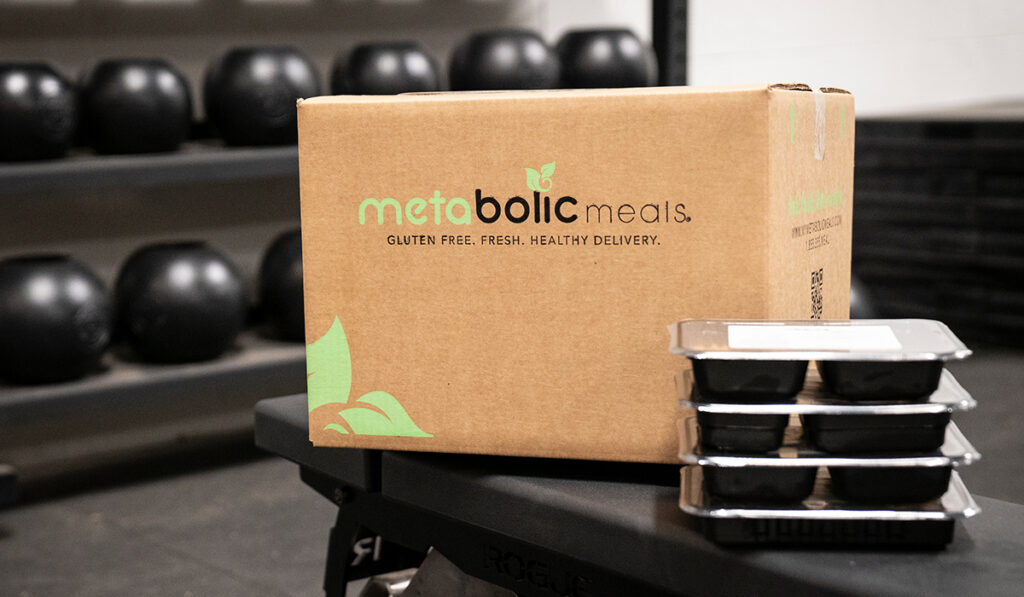In recent decades, the landscape of our diets has dramatically shifted with the proliferation of processed foods. These convenient, shelf-stable products have become a staple in many households, but their prevalence has been linked to the alarming rise in obesity and chronic diseases.
Processed foods often have additives and artificial ingredients such as high fructose corn syrup, monosodium glutamate (MSG), artificial sweeteners, inflammatory vegetable oils and preservatives like sodium benzoate and nitrates. Statistics reveal a stark increase in processed food consumption; over the past 50 years, processed food intake has soared, with some estimates indicating that these foods now make up over half of the average American diet. This surge correlates with escalating rates of health issues, underscoring the need for a critical examination of our food choices.

The Connection Between Convenience & Chronic Disease
The overconsumption of processed foods has become a significant public health concern. On average, processed foods contribute a substantial portion of daily caloric intake, with some studies suggesting that they account for nearly 60% of total calories consumed by Americans.
These foods are engineered to be highly palatable, often combining high levels of sugar, fat, and salt to create flavors that are difficult to resist. However, despite their taste appeal, processed foods are typically low in essential nutrients and fiber, leading to poor satiety. This lack of fullness can result in increased food intake, perpetuating a cycle of overeating and contributing to the growing prevalence of obesity and related chronic diseases.
Food Quality Matters
In contrast to the negative impacts of processed foods, a balanced diet rich in whole foods offers numerous health benefits. Whole foods, such as fresh fruits, vegetables, low allergenic carbs, animal proteins raised on their natural diets, and healthy fats, are packed with essential nutrients and antioxidants that help lower inflammation. This anti-inflammatory effect supports overall health and can reduce the risk of chronic diseases.
A diet centered around whole foods also strengthens the immune system, providing the necessary vitamins and minerals for optimal immune function. Whole foods also aid in the body’s natural detoxification processes, helping to eliminate toxins and improve metabolic health. By enhancing digestion and nutrient absorption, these foods can lead to a higher metabolism, promoting weight management and overall vitality. Embracing a whole-food diet is a powerful step toward improving health and well-being.

Protein is King
Incorporating high-quality proteins such as grass-fed, pasture-raised, and wild-caught options can offer significant health advantages. These protein sources are more environmentally sustainable and boast a healthier fat profile compared to conventional feedlot proteins. Grass-fed and pasture-raised meats typically contain more omega-3 fatty acids and a better omega-6 to omega-3 ratio, crucial for reducing inflammation and supporting heart health.
These proteins are also rich in key vitamins and minerals such as vitamins E and A and essential trace minerals like zinc and iron. Wild-caught fish, in particular, are excellent sources of omega-3 fatty acids, which play a vital role in brain health and reduce the risk of chronic diseases. By choosing high-quality proteins, you can enhance your nutritional intake and support overall health in ways that lower-quality, conventionally raised proteins simply cannot match.

Balance Your Dietary Fats
Incorporating healthy fats such as extra virgin olive oil, coconut oil, butter, and ghee into your diet can offer many health benefits. Extra virgin olive oil is renowned for its heart-protective properties, primarily due to its high content of monounsaturated fats and antioxidants like polyphenols. These compounds help reduce inflammation, lower blood pressure and decrease the risk of heart disease. Coconut oil, rich in medium-chain triglycerides (MCTs), is easily metabolized by the body and can boost energy levels and support cognitive function.
Butter and ghee, especially from grass-fed cows, are excellent sources of fat-soluble vitamins such as A, D, E, and K, which are essential for bone health, immune function, and skin health. Ghee, in particular, has a high smoke point, making it ideal for cooking at high temperatures without degrading its beneficial compounds. Including these high-quality fats in your diet can support overall health and well-being, benefiting everything from your cardiovascular system to your metabolic health.

Rotate Between Seasonal Produce
Eating seasonal fruits and vegetables offers numerous health benefits beyond their delicious taste and vibrant colors. These foods are at their peak in terms of nutritional value, providing an abundance of essential vitamins, minerals, and phytonutrients. Seasonal produce is particularly rich in various types of fiber, including soluble and insoluble fibers, which promote healthy digestion and help maintain stable blood sugar levels. Additionally, the enzymes found in fresh, seasonal fruits and vegetables aid digestion and improve nutrient absorption.
These foods are also packed with antioxidants, such as vitamin C, beta-carotene, and flavonoids, which help protect the body from oxidative stress and reduce the risk of chronic diseases. Moreover, the natural fiber content in seasonal produce enhances satiety, helping you feel fuller for longer and reducing the likelihood of overeating. By incorporating a variety of seasonal fruits and vegetables into your diet, you can enjoy their peak flavors while reaping the health benefits they offer.

Match Carbs with Activity
Opting for gluten-free, low-allergenic carbohydrates like jasmine rice, potatoes, and sweet potatoes can provide various health benefits while supporting your energy and metabolic needs. These carbs are easily digestible and less likely to trigger allergic reactions or sensitivities compared to gluten-containing grains. Jasmine rice is a good source of quick energy due to its high glycemic index, making it an excellent choice for replenishing glycogen stores after intense physical activity. Potatoes and sweet potatoes are rich in vitamins and minerals, including vitamin C, potassium, and beta-carotene, which support overall health and boost immunity.
These carbohydrate sources can be excellent for maintaining energy levels and supporting metabolism, especially when paired with a balanced diet. However, it’s crucial to match the quantities of these foods to your activity level to avoid weight gain and spikes in blood sugar levels. Moderating portion sizes and timing your intake around physical activity can help you harness the benefits of these nutritious carbs without the adverse effects of overconsumption. By incorporating these gluten-free, low-allergenic carbs into your diet, you can fuel your body efficiently while maintaining optimal health.

Summary
Embracing a diet centered around whole, high-quality foods can profoundly impact your health and well-being. By reducing reliance on processed foods laden with additives and artificial ingredients, you can combat the rise in obesity and chronic diseases linked to these modern dietary staples. Prioritizing nutrient-dense whole foods, such as grass-fed proteins, seasonal fruits and vegetables, and healthy fats like extra virgin olive oil and ghee, can lower inflammation, strengthen your immune system, and support metabolic health.
Incorporating gluten-free, low-allergenic carbs like jasmine rice and sweet potatoes provides essential energy while ensuring you avoid common allergens and maintain balanced blood sugar levels. By making mindful choices about what you eat, you can foster better health, enhance your vitality, and enjoy the myriad benefits of a nutritious, balanced diet.

Find the nutrition you need on this week’s menu.
SHOP NOW >






